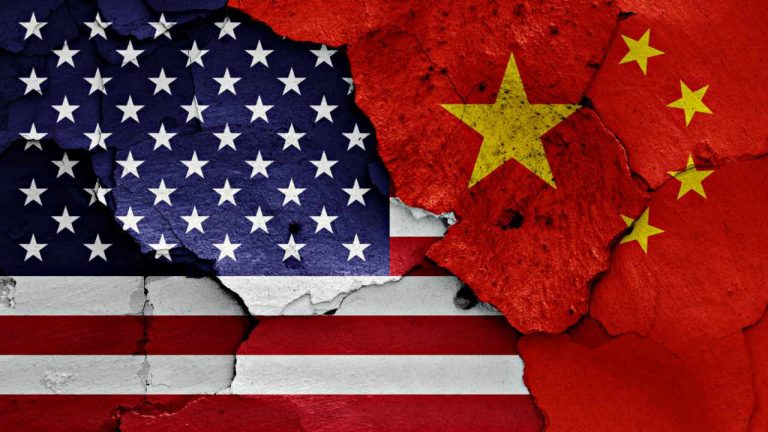
JPMorgan has provided an analysis of the risks of de-dollarization and the potential for the Chinese yuan to displace the U.S. dollar as the world’s reserve currency. The global investment bank says the renminbi could assume “some of the current functions of the dollar among non-aligned countries and China’s trading partners.”
JPMorgan on De-Dollarization and Chinese Yuan
JPMorgan’s Global Research published a report on Thursday titled “De-dollarization: Is the US dollar losing its dominance?”
Alexander Wise, who covers Strategic Research at JPMorgan, described:
The risk of de-dollarization, which is a periodically recurrent theme throughout post-war history, has returned into focus due to geopolitical and geostrategic shifts.
JPMorgan outlined two scenarios that could erode the status of the U.S. dollar as the world’s reserve currency. “The first includes adverse events that undermine the perceived safety and stability of the greenback — and the U.S.’s overall standing as the world’s leading economic, political, and military power,” the global investment bank detailed. “The second factor involves positive developments outside the U.S. that boost the credibility of alternative currencies — economic and political reforms in China, for example.”
The report also discusses alternative currencies to the U.S. dollar. “A candidate reserve currency must be perceived as safe and stable, and must provide a source of liquidity that is sufficient to meet growing global demand,” Wise noted.
Regarding whether the Chinese yuan (renminbi) could displace the USD, the analyst detailed: “With China’s growing centrality in global commerce, one might naturally expect the renminbi to assume a greater role in the global economy over time, but this transition would likely occur over the course of decades.” He added:
Relaxing capital controls, opening markets, implementing measures to promote market liquidity, bolstering the rule of law, reducing appropriation and regulatory risk, and promoting Chinese government bonds as an alternative safe asset — these could all cement China and the renminbi as a credible alternative to the U.S. and the dollar.
The report also discusses de-dollarization in oil markets, stating: “More oil sales are now being transacted in non-dollar currencies such as the renminbi.” Natasha Kaneva, head of Global Commodities Strategy at JPMorgan, pointed out: “The U.S. dollar, one of the key drivers of global oil prices, appears to be losing its once powerful influence.”
Jahangir Aziz, head of Emerging Market Economics Research at JPMorgan, stated: “Overall, we find that the importance of the dollar has declined significantly from 2014 to 2022.”
Regarding whether de-dollarization is imminent, JPMorgan said: “While marginal de-dollarization is expected, rapid de-dollarization is not on the cards.” The global investment bank continued:
Instead, partial de-dollarization — in which the renminbi assumes some of the current functions of the dollar among non-aligned countries and China’s trading partners — is more plausible, especially against a backdrop of strategic competition.
“This could over time give rise to regionalism, creating distinct economic and financial spheres of influence in which different currencies and markets assume central roles,” JPMorgan concluded.
Do you agree with JPMorgan’s analysts about de-dollarization? Do you think the Chinese yuan could displace the U.S. dollar as the world’s reserve currency? Let us know in the comments section below.